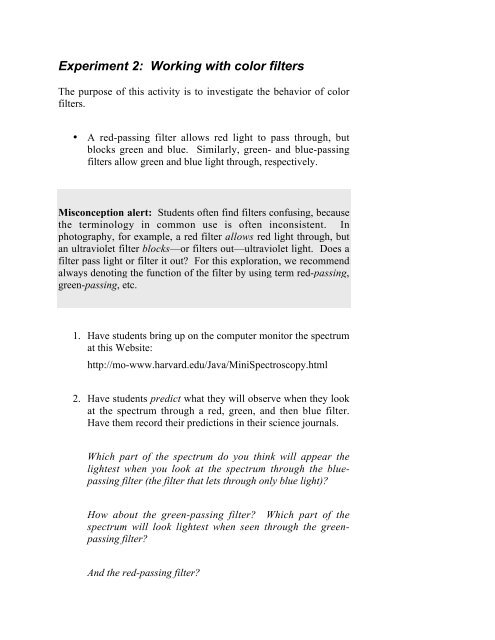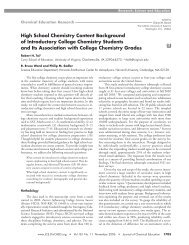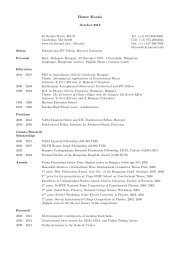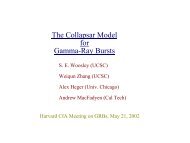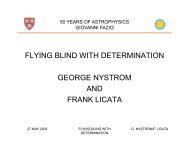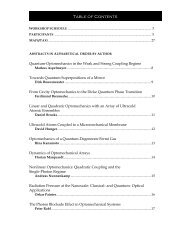What does the universe look like in color?
What does the universe look like in color?
What does the universe look like in color?
You also want an ePaper? Increase the reach of your titles
YUMPU automatically turns print PDFs into web optimized ePapers that Google loves.
Experiment 2: Work<strong>in</strong>g with <strong>color</strong> filters<br />
The purpose of this activity is to <strong>in</strong>vestigate <strong>the</strong> behavior of <strong>color</strong><br />
filters.<br />
• A red-pass<strong>in</strong>g filter allows red light to pass through, but<br />
blocks green and blue. Similarly, green- and blue-pass<strong>in</strong>g<br />
filters allow green and blue light through, respectively.<br />
Misconception alert: Students often f<strong>in</strong>d filters confus<strong>in</strong>g, because<br />
<strong>the</strong> term<strong>in</strong>ology <strong>in</strong> common use is often <strong>in</strong>consistent. In<br />
photography, for example, a red filter allows red light through, but<br />
an ultraviolet filter blocks—or filters out—ultraviolet light. Does a<br />
filter pass light or filter it out? For this exploration, we recommend<br />
always denot<strong>in</strong>g <strong>the</strong> function of <strong>the</strong> filter by us<strong>in</strong>g term red-pass<strong>in</strong>g,<br />
green-pass<strong>in</strong>g, etc.<br />
1. Have students br<strong>in</strong>g up on <strong>the</strong> computer monitor <strong>the</strong> spectrum<br />
at this Website:<br />
http://mo-www.harvard.edu/Java/M<strong>in</strong>iSpectroscopy.html<br />
2. Have students predict what <strong>the</strong>y will observe when <strong>the</strong>y <strong>look</strong><br />
at <strong>the</strong> spectrum through a red, green, and <strong>the</strong>n blue filter.<br />
Have <strong>the</strong>m record <strong>the</strong>ir predictions <strong>in</strong> <strong>the</strong>ir science journals.<br />
Which part of <strong>the</strong> spectrum do you th<strong>in</strong>k will appear <strong>the</strong><br />
lightest when you <strong>look</strong> at <strong>the</strong> spectrum through <strong>the</strong> bluepass<strong>in</strong>g<br />
filter (<strong>the</strong> filter that lets through only blue light)?<br />
How about <strong>the</strong> green-pass<strong>in</strong>g filter? Which part of <strong>the</strong><br />
spectrum will <strong>look</strong> lightest when seen through <strong>the</strong> greenpass<strong>in</strong>g<br />
filter?<br />
And <strong>the</strong> red-pass<strong>in</strong>g filter?


